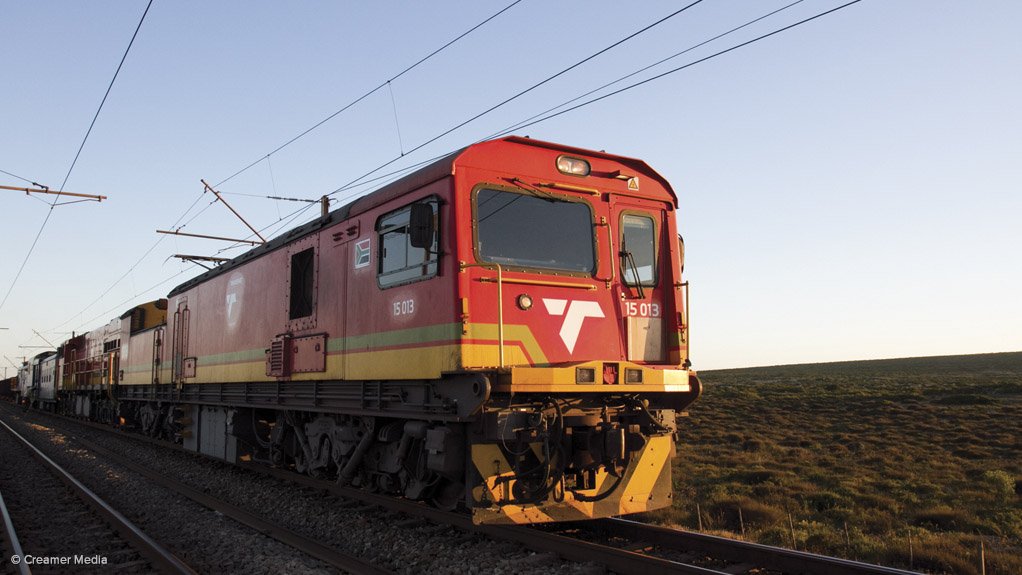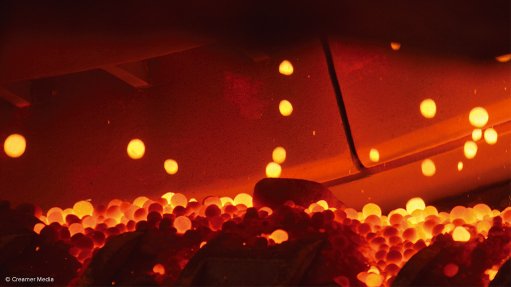Heavy-haul industry urged to embrace supply-chain approach



INDUSTRY OVERHAUL Tansformation of the heavy haul industry is key in countries, such as South Africa, where a minority of the country’s rail-friendly freight is transported by rail
Photo by Duane Daws
BRIAN MONAKALI Going forward, we need to break the boundaries and manage the entire logistics value chain in a seamless way
The “ultimate innovation” for the heavy-haul industry is to adapt and broaden its view to encompass the entire supply chain if it is to secure a sustainable future, says State-owned railways utility Transnet Freight Rail (TFR) executive Brian Monakali.
He suggests that such a transformation is key in countries such as South Africa. Only 15% of the country’s rail-friendly freight is transported by rail, while the predominant transport mode for the bulk of the country’s freight is currently road haulage.
“A significant . . . overhauling [of] the entire supply chain is possible if efforts are coordinated and heavy rail operators can improve collaboration, as the alternative for the industry is to become irrelevant or subservient to other logistics providers, owing to the lack of transformation,” he says.
Transformation of the heavy-haul supply chain will be one of the objectives of the eleventh International Heavy Haul Association Conference, which will be held in Cape Town in September. The conference will focus on the theme, Advancing Heavy Haul Technologies and Operations in a Changing World, with industry executives, engineers and rail freight professionals gathering for this biennial event.
“The heavy-haul rail industry may appear an odd candidate for disruption and innovation, but we recognise that now is not the time for complacency and that we have a unique opportunity to up our game and set out on a path of sustainable growth,” says Monakali.
While there are challenges to bridging the gap between the rail yards and “the last mile” to customers, these are not insurmountable, he says, advancing that links could be created through strategic partnerships with existing road freight companies.
Historically, the logistics have been managed in silos, with a lack of alignment among the operations of customers, heavy-haul operators, ports and end-users.
“Going forward, we need to break the boundaries and manage the entire logistics value chain in a seamless way,” Monakali says.
Key challenges to industry currently include the global slowdown and China’s cooling economy, as well as low commodity prices, which have had a noticeable impact across all supply chains and industry sectors, he adds.
These impacts include the increasing unit costs of running heavy haul-operations, which, in turn, increase the pressure on the profitability of the railway company. This pressure is driven by the value chain logistics costs from the customer, which impact on the port or end-user.
This impact has resulted in the heavy rail sector experiencing declining volumes, income and profits, forcing rail operators to operate at lower operational costs by introducing several innovations, Monakali says.
However, these interventions are focused on reducing costs, as achieving efficiencies “can go only so far towards improving the bottom line”, he argues.
“Australian operators, for example, have nearly doubled the carrying capacity of some of their rolling stock. “In South Africa, using new technologies that enable us to evenly distribute the power of locomotives throughout Transnet’s famously long iron-ore train has helped to increase speed, braking and control, while reducing wear and tear on rails and wheels,” he says.
By adopting a more customercentric approach, TFR can also significantly improve its reliability, availability and predictability, Monakali adds.
“We are making strides to tighten these types of operational disciplines using technology to monitor the condition of infrastructure and rolling stock, and trace and report the whereabouts of assets such as our rolling stock. “In fact, it is difficult to think of an industry riper for the application of Internet of Things solutions to help drive improvements than rail,” he says.
However, Monakali suggests that the transient nature of the challenges is evident in the fortunes of commodity prices, with the price of gold, coal and iron-ore having risen rapidly last year and continuing to do so this year.
“The impact of this is that the industry has a small window of opportunity to use the downturn to squeeze out all possible efficiencies – essentially preparing for the eventual turnaround of local and global economies so that we’re able to meet demand,” he concludes.
Article Enquiry
Email Article
Save Article
Feedback
To advertise email advertising@creamermedia.co.za or click here
Press Office
Announcements
What's On
Subscribe to improve your user experience...
Option 1 (equivalent of R125 a month):
Receive a weekly copy of Creamer Media's Engineering News & Mining Weekly magazine
(print copy for those in South Africa and e-magazine for those outside of South Africa)
Receive daily email newsletters
Access to full search results
Access archive of magazine back copies
Access to Projects in Progress
Access to ONE Research Report of your choice in PDF format
Option 2 (equivalent of R375 a month):
All benefits from Option 1
PLUS
Access to Creamer Media's Research Channel Africa for ALL Research Reports, in PDF format, on various industrial and mining sectors
including Electricity; Water; Energy Transition; Hydrogen; Roads, Rail and Ports; Coal; Gold; Platinum; Battery Metals; etc.
Already a subscriber?
Forgotten your password?
Receive weekly copy of Creamer Media's Engineering News & Mining Weekly magazine (print copy for those in South Africa and e-magazine for those outside of South Africa)
➕
Recieve daily email newsletters
➕
Access to full search results
➕
Access archive of magazine back copies
➕
Access to Projects in Progress
➕
Access to ONE Research Report of your choice in PDF format
RESEARCH CHANNEL AFRICA
R4500 (equivalent of R375 a month)
SUBSCRIBEAll benefits from Option 1
➕
Access to Creamer Media's Research Channel Africa for ALL Research Reports on various industrial and mining sectors, in PDF format, including on:
Electricity
➕
Water
➕
Energy Transition
➕
Hydrogen
➕
Roads, Rail and Ports
➕
Coal
➕
Gold
➕
Platinum
➕
Battery Metals
➕
etc.
Receive all benefits from Option 1 or Option 2 delivered to numerous people at your company
➕
Multiple User names and Passwords for simultaneous log-ins
➕
Intranet integration access to all in your organisation


















